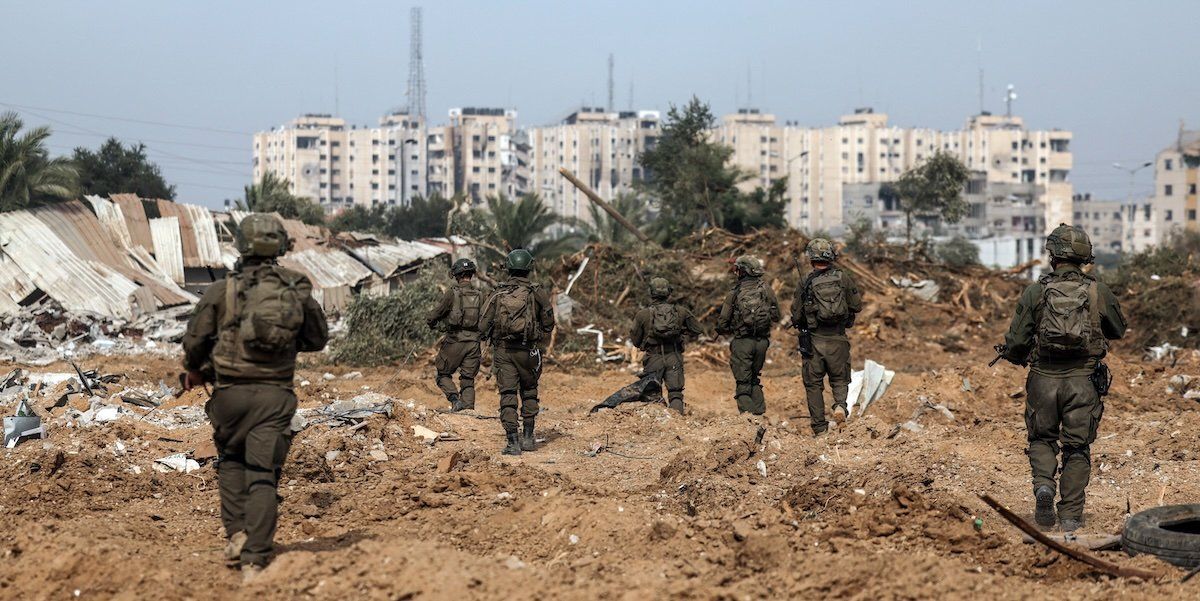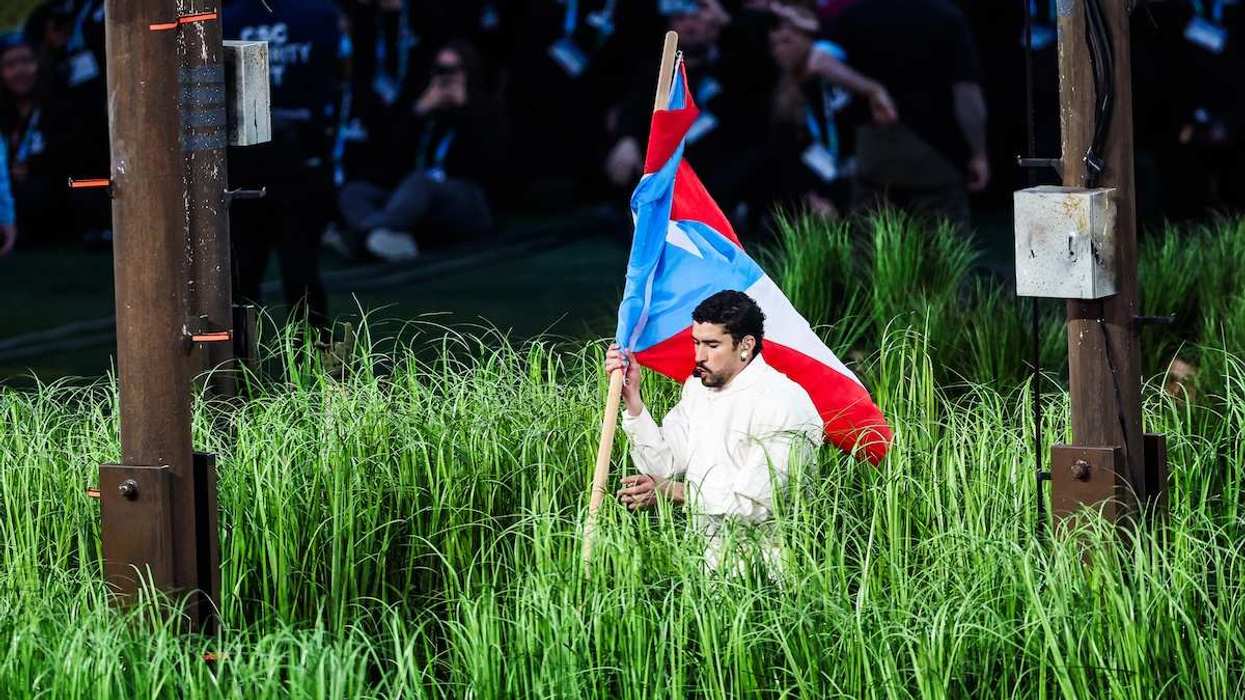South Africa has formally accused Israel of committing genocide against Palestinians and began making its case against the Jewish state before the International Court of Justice on Thursday.
The allegation, which comes amid the Israel-Hamas war in Gaza, touches on an incredibly sensitive issue for Israel: Genocide was recognized as a crime under international law during the late 1940s in the aftermath of the Holocaust, during which the Nazis murdered six million Jews. The word “genocide” was even coined by a Polish-Jewish lawyer, Raphael Lemkin, who lost much of his family during the Holocaust.
The war in Gaza, which began after Hamas killed roughly 1,200 people in Israel on Oct. 7, has devastated the densely populated coastal enclave on myriad levels. More than 23,000 people, including over 10,000 children – about 1% of Gaza’s population – have been killed since the fighting began, according to the Hamas-run health ministry. Approximately 1.9 million people have been displaced. The humanitarian situation is dire, and the UN recently warned a famine could ensue.
Israel has faced global condemnation over its approach to the war, but it has rejected widespread calls for a cease-fire and is forcefully pushing back against the notion its actions have constituted genocide.
The legal definition of genocide. The 1948 Genocide Convention defines it as "acts committed with intent to destroy, in whole or in part, a national, ethnical, racial or religious group.”
The keyword here is “intent.” Prosecutors must prove that the accused acted with specific intent to eliminate an entire group – and that’s not an easy task.
The view from South Africa. The rainbow nation is accusing Israel of violating its obligations under the 1948 Genocide Convention.
“Israel has a genocidal intent against the Palestinians in Gaza,” Tembeka Ngcukaitobi, advocate of the High Court of South Africa, told the UN’s top court on Thursday. “The intent to destroy Gaza has been nurtured at the highest level of state.”
By way of evidence, South Africa pointed to statements made by top Israeli officials, such as Israeli Defense Minister Yoav Gallant, who said the Jewish state was fighting “human animals” in Gaza.
Another lawyer for South Africa, Adila Hassim, said Israel has killed an “unparalleled and unprecedented number of civilians” in Gaza “with the full knowledge of how many lives each bomb will take.”
The view from Israel. Israeli leaders maintain that the offensive in Gaza is against Hamas – not all Palestinians – and they accuse South Africa of serving as the “legal arm” of the Palestinian militant group.
Israel’s government says that it’s not intentionally killing civilians and that it’s doing everything it can to avoid collateral damage. It has repeatedly pointed the finger at Hamas for the rising death toll, stating that the militant group endangers civilians by operating in residential areas.
Israeli Prime Minister Benjamin Netanyahu ripped into South Africa on Thursday, accusing it of hypocrisy while reiterating that Israel would continue to fight in Gaza until “total victory.”
What’s next? South Africa is calling on the ICJ to issue a preliminary order to demand Israel cease fighting. This ruling could potentially come in the next few weeks, but the full case – or a final decision on the genocide allegations – is likely to take years.
At the end of the day, the ICJ also has no real power to enforce its rulings, even though they’re binding and not subject to appeal. South Africa could request that the UN Security Council take action in response to an ICJ decision. But the US, a permanent member of the council with veto power, is Israel’s top ally and would likely take steps to protect it.
Past UN tribunals have convicted individuals of genocide in cases about massacres in Rwanda and the former Yugoslavia in the 1990s. But the ICJ, which adjudicates disputes between states (unlike the International Criminal Court, which focuses on individuals), has never determined that a state is responsible for genocide.
Israel will deliver its response before the ICJ on Friday. Regardless of where this case goes – and even if the Israeli government ignores any potential rulings against it – it’s emblematic of the growing, fierce international opposition to Israel’s offensive in Gaza.



















